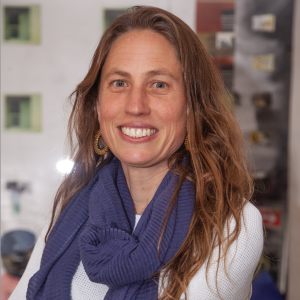PCMLP Summer Institute Alumni: '37 Front Street File: Now we know what you did last summer'
Associated people
This past summer, as my colleagues surveyed France’s fine frontiers or motored through the American Midwest, my own sojourn took me to a similarly fanciful destination: Hogwarts.
Well, sort of.
The historic university city of Oxford, U.K. is well-regarded, not only for its academic prowess, but also, more recently, for being a source of inspiration for the internationally-renowned series of Harry Potter films.
True to my own character, as the NNC’s self-appointed ‘resident nerd’, I was fascinated at how the city was able to integrate the supposed juxtaposition of its often overlapping ‘old’ and ‘new’ cultural hallmarks.
My reason for traveling to Oxford, however, was not to walk in the steps of characters such as Harry, Hermoine, or Ron; although, mind you, the common iconic gothic backdrop was nice.
I was there to contemplate — and ultimately face up to — some of the most pressing questions confronting the world of journalism today.
The topics analyzed during the Annenberg-Oxford Fellowship in Media, Law, and Policy were, indeed, far from fiction.
With fellows drawn from every continent on the planet, the parameters of the discussion were international in scope. Headline topics included the emerging concerns about the Right to be Forgotten in Europe and its potential to soon cross the Atlantic; to the challenges of regulating hate and unpopular political speech; and how to help immunize society from the perilous effects of misinformation and so-called ‘fake news’.
Admittedly, the challenge in finding common policy or legal ground to any of these grand ideas is restricted by overarching questions of sovereignty. For example, how does a social media company, such as Facebook or Twitter, establish content regulation policies when those policies may either exceed or fall well-short of a country’s laws on defamation or the policing of hate speech?
While these daily performances of intellectual gymnastics — for a layman journalist like me, at least — were enlightening, the fellowship did provide an excellent forum to reflect more deeply upon the many issues we face every day at the National NewsMedia Council.
Two of the largest themes of relevance to the NNC that surfaced from discussions were the challenges of how to support local news, and the role that quality and accurate journalism plays in the formation of good citizens.
As we heard from several experts who study media localism, the challenge in implementing public policy responses to questions of expanding news deserts is highly conceptual.
Although the phrase is often on the tips of our collective tongues, what exactly is meant when we talk about ‘local news’?
It is something that should be measured purely based on geography? Is it a topic of interest to a specialized set of readers — or even an imagined community? Or is it some combination of all of these categories melted into one?
Certainly, these are very technical questions that deserve to be fleshed out in greater detail. That’s one of the objectives we hope to achieve in our collaborative study with Ryerson University on local news that will be released in January 2019.
Another major area of concerns was how to effectively equip citizens with the foundational news literacy skills required given the power and influence of algorithms to influence one’s consumption of news.
Some suggestions for solutions focused on different combinations of regulation (either by government, or, self-regulation), increasing the burdens of editorial responsibility, and/or news and media literacy campaigns.
When taken as a whole, however, the discussion underscored how a so-called ‘quick fix’ is not the right answer to any of these problems.
As we’ve seen in the overwhelming offensive to push back against the deleterious effects of so-called ‘fake news’, the percolating sense of moral panic across society has been informed by scant information. To date, for example, there is a paucity of information on how exactly algorithms curate and package information into our Facebook or Twitter feeds for ready consumption.
Having been privy to these fulsome discussions over a period of two weeks, I’ve realized that there is a lot we don’t yet know. In order to build a more sustainable news ecosystem in Canada, however, there needs to be a stronger dialogue between the thinkers and practitioners of news.
Every day, the relationship between journalism and society evolves. Over the coming months, I’m looking forward to working with the NNC to build stronger partnerships with colleges, universities, industry associations, and other important groups who can address these challenges.
Why?
Well, because as one expert said so eloquently (under strict Chatham House Rules!): “the health of democracy and journalism are wholly intertwined”.
— Brent Jolly is the NNC’s director of communications, research and community management. He can be reached at: bjolly@mediacouncil.ca
For the original article and more info please click here.


